PhD / MPhil students in SELCS / CMII
Please use UCL Directory to access our students' contact details.
Comparative Literature
- Emily Moore - Jazz and Blues in the work of Gayl Jones
Supervisor(s): Prof Paul Gilroy and Dr Christine Yao
This project will explore Jazz and The Blues in the work of Gayl Jones, seeking to discern precisely how Jones translates or transcribes musical techniques into literary ones and renders her written texts distinctly oral. My central research enquiry is to decipher the aesthetic and political purposes Jones' musical techniques serve. In answering this, I will explore the way in which they can facilitate psychological recovery from trauma, assert individual, national and racial identity and absorb and confront the enduring legacy of slavery in modern America. This study seeks to redress an imbalance by attending to the work of a much neglected author and taking account of her entire oeuvre, including her later novels and poetry collections that have received startlingly little attention. In considering Jones' musical techniques, this project will acknowledge and investigate Jones' innovation and experimental formal skill that has been submitted by critical attention, often hostile to her work's thematic content. Timely with the recent republication of some of Jones' novels, the project hopes to amplify a significantly aural, but often over-looked voice
- Guangzhao Lyu - The Boom and The Boom: A Comparative Study of the Post-1990 Chinese and British Science Fictions
Supervisor(s): Dr James Kneale (principal) and Dr Lu Xiaoning, SOAS (subsidiary)
The relatively simultaneous emergence of the British SF Boom and the Chinese New Wave is certainly something more than a sheer coincidence. This study consists of a series of coherent comparative case studies divided into three sections, i.e. ‘Demise of False Utopia’ discussing the social and cultural changes resulted from the proliferation of neoliberal values in China and the UK, ‘Do Not Go Gentle into the “Good Hell”’ challenging the neoliberal discourse that dominates the global structure, and ‘Pass the Point of No Return’ exploring the alternatives to our current neoliberal capitalism indicated in post-singularity and post-apocalypse narratives. It will argue that the global impact of neoliberalism is one of the most significant factors that encourages the two sf boom, which could transcend the ‘pastiche’ in the neoliberal social discourse and introduce new potential to make it less difficult to imagine the end of capitalism.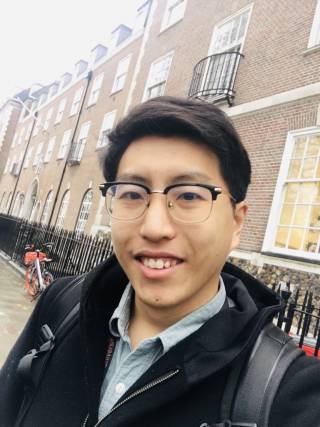
- Stephanie T Y Ng - Affective Belonging and Aspirational Normativity in Twenty-First Century Fiction
Supervisor(s): Dr Hans Demeyer (principal) and Kevin Inston (subsidiary)
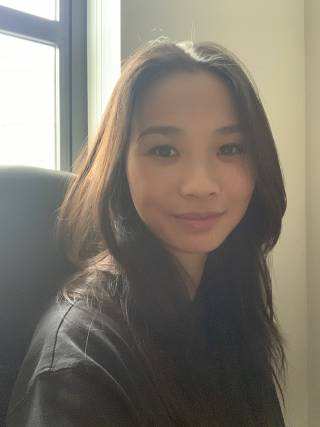
Situated at the intersection of neoliberalism and affective belonging, my research asks how citizens weather and are weathered by the relentlessly individualistic, entrepreneurial culture of contemporary Western societies. Adopting the theoretical framework of Lauren Berlant, who takes intimacy, sexuality, and feeling as key modes through which citizens engage with each other and with the nation at large, I seek to locate various modes of relationality that offer temporary relief for an increasingly fractured body politic. I read twenty-first century fiction and autobiography through a psychosocial, affective lens to examine both the political dimensions of these intersubjective attachments as well as their practical manifestations.
My current focus is on the nuclear family as a symbol for the normative good life. Building primarily on Wendy Brown’s Undoing the Demos, Melinda Cooper’s Family Values, and Berlant’s Cruel Optimism, I posit that the family is but a temporary substitute for a broken welfare system. It is a weak promise of a vaguely better life that distracts from the exhaustion of living on in the eternal present. Yet, neoliberal citizens continue to invest in the fantasy of the couple form, the love plot, and the home – why? How do they negotiate their disillusion, on the one hand, and their compulsive pursuit of the good life on the other? What are some political implications of their ambivalent attachments to a heteronormative idealization of belonging? I turn to Rachel Cusk’s autofictional Outline trilogy in an attempt to answer these questions.
- Sarah Moxham - Poetic Happenings: The Interactions of French and Italian Poetry in Print and Performance Art from 1958 to 1981
Joint supervisors: Prof. Timothy Mathews and Dr Beatrice Sica

My AHRC-funded research examines the dynamics between printed poetry and performance art in France and Italy from 1958, the official birth date of an early form of post-war performance art known as Happenings, to 1981, a time that marks a shift from performance art to performance poetry. Interacting with a diverse collection of works, I analyse aspects of both literary and performance studies that have been neglected by focusing on one approach alone, repairing the links that bind poetic orality and performativity to poetic literacy whilst exploring poetry from an often ignored perspective: its application in society, not only as an object of cultural critique but also as a facilitator of social change. I demonstrate how poets and performance artists adapt a variety of artistic traits to embody the spirit of ‘total poetry’, a dynamic, ever-evolving poetic hybrid committed to the constant exposure of new creative possibilities.
- Buket Boz - On Night: Darkness in Vulnerability and Transgression
Supervisor(s): Prof. Florian Mussgnug (principal) and Dr Emily Baker (subsidiary)
Investigating the visual and spatial connotations of night, my research connects darkness with vulnerability and transgression. At the turn of the twenty-first century, night has come to be acknowledged by scholars and writers for being a space of freedom for the marginalized Other, and a shelter from the anxieties triggered by day’s penetrating light. My project speaks to this relatively recent approach that reinforces the multifaceted qualities of night.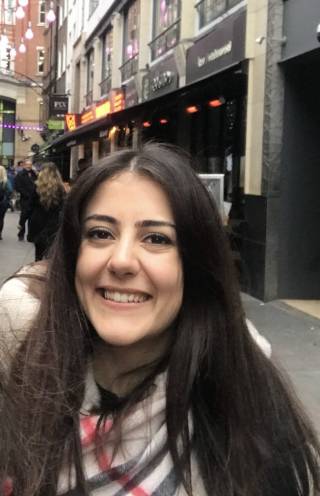
Through the novels I analyse, which problematise reality by creating ‘irrealities’, I hope to emphasise night’s role in challenging the dependency on visual and spatial perception. Drawing on the (anti)ocular and spatial theories namely that of Henri Lefebvre, Michel Foucault, Juhani Pallasmaa and Judith Butler, I demonstrate how night influences one’s (self)perception, and I argue that darkness, by stimulating vulnerability and transgression, subverts totalitarian notions about ‘seeing’ which emphasise surveillance, homogenisation and discipline. I explore vulnerability and transgression in terms of the activities that are traditionally dedicated to night-time (sleeping, dreaming and having sex) and metaphorically nocturnal faculties (imagination and memory). Through this analysis, I aim to bring various aspects of night to forefront to accentuate the value of the invisible, intangible, and the irrational.- Serena (Qihui) Pei - Feeling with Nature: Affect and Ecology in Transatlantic Romanticism and Chinese Taoism
Supervisor(s): Prof. Stephen M. Hart (principal), Prof. Peter Swaab and Dr Xiaofan Amy Li (subsidiary)
My project will try to address ecological concerns about “aesthetic distance” as well as the dualism between nature & culture, human & nonhuman from the perspective of affective ecocriticism, by embracing a broader across-cultural scale with Chinese traditional philosophy, Taoism. Its focus will shift away from contemporary fictions, which are frequently involved in current ecocriticism of climate change literature, into classic poetics of nature as well as modern eco-poetry.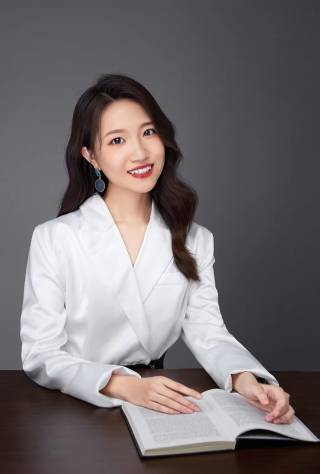
- Jiang Yishan - Representing China: A Comparative Literary Study of Chinese Modernity From The Late Qing to The Republican Era
Supervisor(s): Prof Stephen M. Hart (principal) and Dr Xiaofan Amy Li (subsidiary)
Based on some controversial problems about China, my thesis interrogates what China is on the basis of a comparative study of the portrayal of Chinese modernity in a set carefully chosen literary texts. Besides, I will explore modernity by examining various disciplines such as history, geography and anthropology.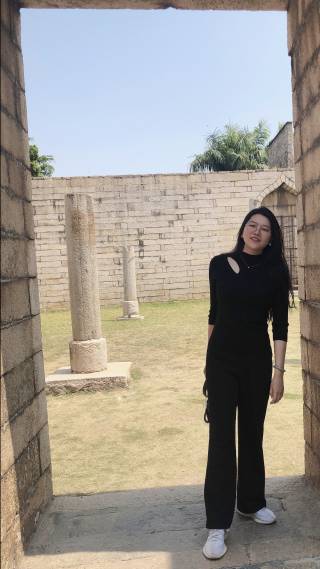
Stephanie Ng - On Compromise: Neoliberalism, Feminism, and the Disappointed Promise of Personhood
Supervisor(s): Dr. Hans Demeyer (principle) and Dr. Kevin Inston (subsidairy)
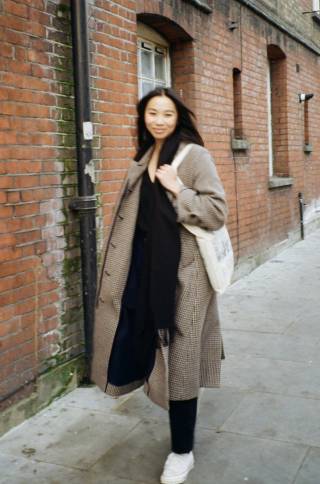
My project starts from the observation that women in the contemporary present are, by all legal accounts, full-fledged citizens, yet they must nonetheless encounter themselves as nonsovereign. I read twenty-first century, Anglo-American fiction through a psychoaffective and largely reparative lens, focusing on the strategies enacted by women who pluck up the courage to live differently – outside the bounds of a generic femininity – only to encounter the necessity of yielding to others for the sake of ongoingness and belonging.
- Bee Sachsse (Elizabeth)- Evolving Representations of Fatness in Anglophone and Francophone Prose Fiction
Supervisor(s): Prof. Patrick Bray (principle) and Dr. Leah Sidi (subsidairy)
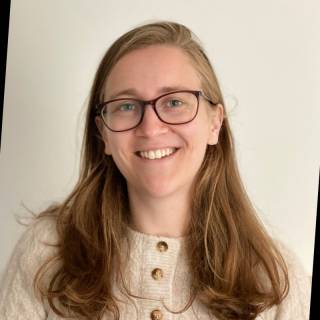
My research focuses on fatness in anglophone and francophone fiction, weaving together existing scholarship on the history of the novel form and the history of fatness and anti-fat bias. This will be one of very few literary studies of fatness to meaningfully engage historical, sociological, scientific, and art historical studies of fatness.
One part of my research will develop a theory of the obscurity of fat characters in twentieth- and twenty-first-century novels, building on previous work in queer and affect studies. This research will stem from close readings of fat characters in key texts, with particular attention paid to the ways that texts leverage certain affects to create the sense that fat characters lie outside prose fiction’s representational capability. In considering the flatness or sheer unintelligibility of certain fat characters, my research will present an opportunity to extend and refine previous thinking on disability, abjection, and affect as they intersect in literature.
The other part of my research will seek to understand how the parallel developments of anti-fat bias and the novel form in the eighteenth and nineteenth centuries resulted in fat characters’ obscurity in later novels. My readings of British and French novels of the period will be informed by existing historical research, with particular attention paid to racial and scientific discourses on fatness in the eighteenth and nineteenth centuries. I will examine how evolving literary, medical, economic, and philosophic discourses on the body and the individual to create the figure of the fat person as the perfect anti-novelistic subject—a being governed by type rather than individual circumstance or will. In reading novels from the period, I will chart the relationship between body size and the degree to which a character is presented as an individual, or as socially or naturally determined.
My readings of fatness in British and French novels of the eighteenth and nineteenth centuries will also draw from previous scholarship on interiority in novels. By comparing the use of free indirect style in portrayals of fat and thin characters in nineteenth-century novels, I will look for stylistic antecedents of the contemporary novel’s reluctance to imagine fat characters’ interiority.
My work advances literary studies by bringing together several strands of literary and social scientific inquiry: novel history and theory, feminist and queer theory, disability studies, the history of race and empire, and the history of science. Studying fatness in prose fiction allows us to probe the limits of the vivid interiority and individuality often taken as a defining feature of the novel or short fiction. In doing so, my research will illuminate how social and scientific history and norms shape imagination itself, as traceable in literature.
Creative Critical Writing
- Devin Tupper - Between Terrors and Authors: Gothic Postmodernism as a Hauntological Creative Critical Practice
Joint supervisors: Prof Jakob Stougaard-Nielsen and Dr Joana Jacob Ramalho
Policing practices, cancel culture, autofiction, and appropriation debates have led to questions of ownership
and the democratisation of voice, destabilising known ethics and aesthetics of authorship. My research proposes that through in-betweenness and a Gothic mode, a practical and reflective creative practice can interrogate these new questions. This practice will blur the lines between the creative and critical while leveraging the reflective power of fiction and the Gothic as I, an author, explore authorship through in-betweenness, the novel, and the author as ghost.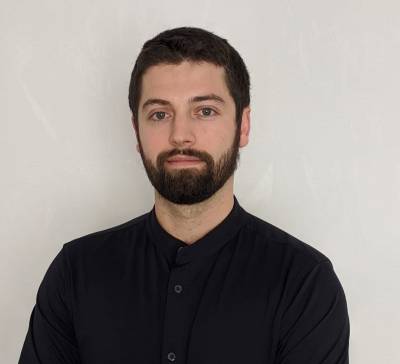
By developing and researching in-betweenness, with its relevancy towards Henry James’ ghostly author, Derridean Hauntology and the Gothic, I aim to ingrain academic thinking into a novel of genre fiction which will explore postmodernist writing, creativity, obsession, the home as identity and memory, mourning and death. As a haunted house narrative, the house will be a physical embodiment of in-betweenness – the interconnecting concept for both the narrative and the aforementioned critical concepts. This embodiment is one example of a creative/critical link whereas the parallels between myself as author, the text’s narrator and the Jamesian ghostly author, driving the narrative towards a desired conclusion, is another. Through highlighting critical elements and engaging with them in particular narrative lenses, the novel exists in-between the creative and critical, functioning as a meta-text that can interrogate modern, destabilised authorial identities.
My research has allowed me to be a participant in the Five Bodies: Critical Poetics Workshop series, hosted by the Critical Poetics Research Group at Nottingham Trent University in partnership with Nottingham Contemporary, which explores creative-critical writing, hybrid methodologies and experimental thinking while my written work has been featured in the online publication, Kamena, and the University of Warwick’s 2019 creative writing anthology, Chimera. I am the winner of the 2020 London Lovecraft Festival’s New Writing Contest, where my winning play tackled themes of authorship and racism in the works of HP Lovecraft, and I am currently a writer-member of The New Works Playhouse – an online theatre company aiming to increase inclusivity in the industry.
- Daria Chernysheva - A Creative Critical Approach to Selecting and Translating the Poetry of Cécile Sauvage
- Supervisor(s): Prof. Geraldine Brodie (principal) and Dr Jennifer Rushworth (subsidiary)
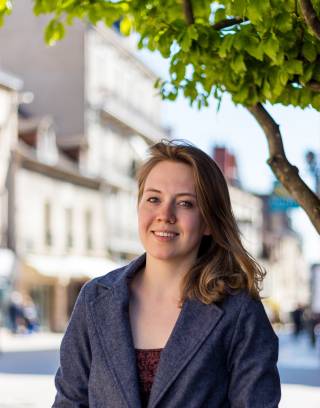
My project involves translating the poetry of early twentieth-century French writer Cécile Sauvage (1883-1927). My goal is not only to help promote the oeuvre of an intriguing and overlooked woman writer, but to examine the creativity of translation more generally. The unique situation of Sauvage’s texts – some have survived in secret, incomplete drafts, others are freely accessible and usable within the public domain – means that this project is not only one of translation, but also an endeavour concerned with rewriting, editing, and anthologising. Creativity is a component in all these processes. The rise of the creative critical in the academy and elsewhere has sought to reveal the creativity inherent in literary practices that have been traditionally perceived as ‘secondary’. It has also attempted to encourage a new way of doing literary scholarship that moves beyond a hermeneutics of suspicion and turns to affective approaches instead. I aim to create a heterogenous dissertation which does not simply separate the creative and the critical into the respective categories of translation and commentary, but instead unearths the creativity inherent even in ‘derivative’ literary practices and the less-than-impartial nature of our most critical postures. In my project I pose questions such as: Where does my editorial authority stem from? Is it possible to make a feminist translation out of non-feminist content? In what ways are translation and editing parallel processes to that of writing the original text? Does the excitement of a challenging translation entail never getting it right? How might the creative and the critical coexist in the mise-en-page of a page? Through such lines of inquiry, I intend to evaluate my relationship to Sauvage and her work, as well as shine a light on her (our?) contribution to literature.
Documentary-track
- Lorena Cervera - Latin American Women’s Documentary Cinema: Practices, Politics, and Aesthetics 1975-1995
Joint supervisors: Prof. Stephen M. Hart and Dr Deborah Martin
This practice-based research provides a revision of the Latin American political documentary between 1975 and 1995 from a feminist perspective. My hypothesis is that Latin American women’s documentary unfolded through three main categories and evolved into a corpus of work within both Latin American and feminist cinema. The first category was influenced by the 1960s Marxist approach of militant cinema but also incorporated counter-patriarchal strategies in the representation of labour struggles. The second one was inspired by women’s movements and collective filmmaking, and explored the politics of the personal. The third category addresses how experiences of migration shifted the documentary discourse from objective to subjective approaches. The practical component of this research consists in making a short documentary that combines interviews with Latin American women filmmakers and footage from their films, and situates their practices and texts within renewed debates on feminist ideas and films.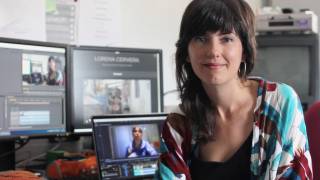
Dutch Studies
- Irving Wolters - Exporting the Canon: The Mixed Experience of the Dutch Bibliotheca Neerlandica
Supervisor(s): Prof. Jane Fenoulhet (principal) and Dr Geraldine Brodie (subsidiary)
In the 1950s, for reasons of cultural diplomacy and Indonesian colonialism, the Dutch Government established a quai-governmental, state-funded organisation to oversee the translation of Dutch literary works into a variety of languages which constituted the first steps in professionalizing and institutionalizing a Dutch literary foreign policy. One of its first major projects was a series of 17 planned literary volumes translated into English entitled The Bibliotheca Neerlandica.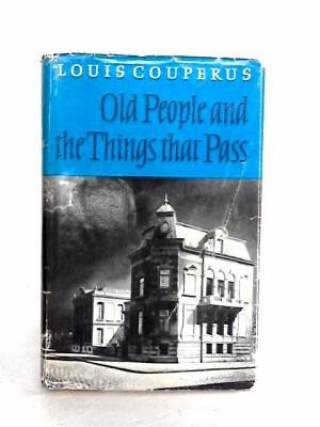
My research concerns the literary participants who played a role in the series - those players deciding which books should be translated, the translators and publishing companies – as well as book design. Only ten of these translated volumes were published before the series was prematurely abandoned and I attempt to establish the reasons for this.
Early Modern Studies
- Anna Schiffer - Sir Philip Sidney’s European Tour (1572-75); its influence on his An Apology for Poetry and on later English poetry
Supervisor(s): Prof. Edward Chaney (principal) and Dr Alexander Samson (subsidiary)
Sir Philip Sidney (1554-1586) was an Elizabethan courtier, diplomat, soldier and later poet. My research examines how, and the extent to which, An Apology for Poetry (and its impact on English literature) resulted from the tour of Europe that he had made between June 1572 and May 1575. It analyses this link in a way that has not been done before by connecting the biographical detail of the tour with the concepts underlying An Apology for Poetry. This detail will include the experiences of the tour, its locations as well as the confessional, artistic and political influences on Sidney of the range of individuals and groups that he met in continental Europe. The argument is that without the tour An Apology for Poetry would not exist in the form that it does.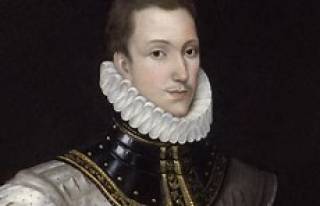
- Ethan Darden - On legendary swords in history and literature: an in-depth examination of Curtana, Durendal and Joyeuse
Supervisor(s): Dr Alexander Samson (principal) and Dr Thibaut Maus de Rolley (subsidiary)
My research explores the anachronistic nature of legendary swords in history and literature, objects which often ‘hesitate’ between their different historical and literary identities and therefore function as both markers of the passage of time and instruments of violence, power and ritual. A handful of these brands, which appeared first in medieval lore and later in historical sources, can be found today in institutions across Europe. The idea is to trace their provenances—from fiction to reality—in order to better understand their importance to medieval and early modern cultures and societies; the implications of which are many and far reaching.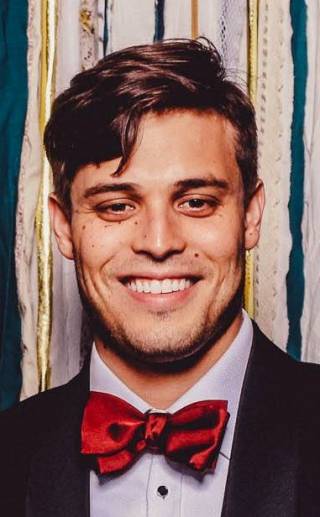
- Rosamund Eileen Fitzmaurice - Precolumbian Mesoamerican Dependency and “Slavery” in Post Classic Aztec and Maya Cultures
Supervisor(s): Dr Alexander Samson and Prof. Elizabeth Graham (principal) and Dr Elizabeth Baquedano (subsidiary)
I am investigating the supposed presence of indigenous slavery in Postclassic Mesoamerica (ca CE 900-1521) focusing on Maya and Aztec cultures. Using methodology from archaeology, ethno-history, and anthropology I investigate relationships of dependency it in Pre-Colombian Mesoamerica. I use Spanish and Precolumbian indigenous sources to determine how formal and informal systems of forced labour were present in Mesoamerica prior to Spanish contact and conquest. I take into account cultural differences between Postclassic Mesoamerica and Early Modern Spain and the transcultural ideas which emerged from the melding of the cultures. Slavery touches on many themes of study within Mesoamerica, and thus I shall also be covering warfare, captives, tribute, and sacrifice in this context. Finally, I use a compare ideas of slavery and dependency to ancient and even modern slave systems and slave societies to determine how we understand slavery and dependency globally.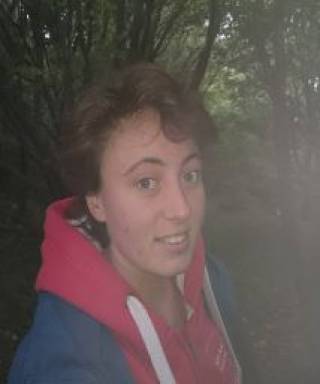
- Jack Hayes - Franco-Italian Literary Sociability and Early Modern Rome (1539-1563)
Supervisor(s): Dr Lisa Sampson (principal) and Dr Emily Butterworth, KCL (subsidiary)
My research engages with a range of poetry — some well-studied, and others which have never been examined in scholarly work — to produce an account of literary sociability in mid-sixteenth-century Rome between French and Italian élite cultural circles (particularly cardinals and diplomats). A first chapter engages with the use of figures of idealized women as a space of cross-language homosociality in poetry. A second chapter offers a comparative analysis of two translations of Virgil’s Aeneid written at Rome, asking what role the text served for two cardinal’s circles. A third chapter assesses the role of space and place, focussed especially on villa poetry and on spaces where French and Italians resident in Rome gathered. A major focus is the production of literature in communities, and literature as a means of communication across linguistic or political boundaries.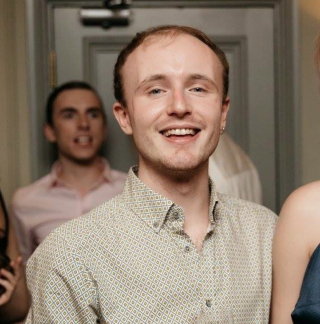
- Samantha Brown - Transcription, translation, and transmission in the work of William Bedwell (1561-1632): Understanding the manuscripts of an early modern Arabist
- Supervisor(s): Dr Robyn Adams (principal) and Dr Matthew Symonds (subsidiary)
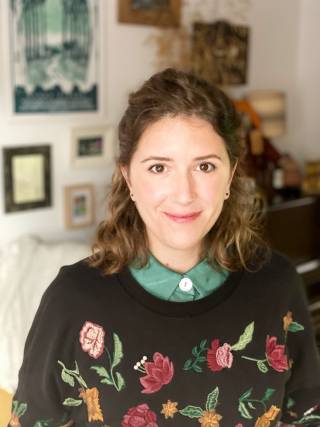
My research is focused on the materiality and afterlives of the manuscripts of William Bedwell (1563-1632), the first Englishman since the Crusades to dedicate his life to the study of Arabic. His manuscripts survive in variety and abundance, scattered across multiple English and European archives. Through analysis of material features such as handwriting and decorative ornamentation, alongside network analysis of the documents’ journeys during Bedwell’s lifetime and beyond, my project will shed light on how the earliest Arabic knowledge was gathered, organised, and shared in early modern Britain.
- Joshua McLoughlin - 'Vnpossible' history in early modern England
Supervisor(s): Dr Alexander Samson (principal)
My research, funded by the Wolfson Foundation, explores how early modern writers, readers and audiences responded to the changing status of ‘history’ in the sixteenth and early seventeenth centuries. During the Reformation, England experienced radical shifts in the definition of ‘truth’ as political, religious, and historical narratives were continually recast to substantiate confessional regime changes, from Henry VIII to James I. History was especially subject to revision: the past became weaponised as the narrative fuel for political and religious spin, disinformation, and propaganda.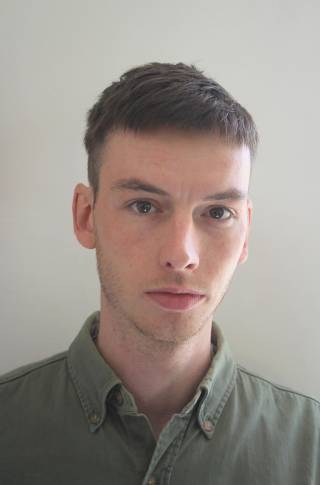
Amid this charged intellectual and literary atmosphere, Abraham Fleming, the exasperated editor of the second edition of Holinshed's Chronicles (1587), declared the historian’s task of sorting truth from partisanship ‘vnpossible'. Taking the idea of ‘unpossible history’ as a starting point, I’m trying to figure out how historians, poets, playwrights, readers and audiences responded to this intense historical revisionism and how they made sense of the repeated reconstruction and ideological manipulation of the ‘truth’ in a bitterly polarised political and religious climate - a climate that prefigures aspects of the debates about ‘post-truth’ politics and ‘fake news’ information culture that shape discourse today.
I am a keen writer, and my work has been published in The Times, The London Magazine, The Spectator, The Fence, Engelsberg Ideas, Review 31, and others. I am also the editor-in-chief of New Critique, and I was shortlisted for the Jane Martin Poetry Prize (2019) and the International Awards for Art Criticism (2020). Before joining UCL, I studied for an MA in Critical Theory at Goldsmiths (Distinction, 2020), an MSt in English 1550–1700 at Oxford (Distinction, 2019) and a BA in English Literature at the University of Manchester (First, 2015). I went to state school and college on Merseyside and I am proud of my working-class background.
European Studies
- Firdevs Bulut - Cultural Diplomacy in the UK and Germany: The History and Theory of Two Institutional Models
Supervisor(s): Mark Hewitson (principal) and Rasmus Nilsson (subsidiary)
The questions to be asked in this project are the following: How has cultural diplomacy become such an important field in creating ties between states and ‘bridges’ in international relations? What are the reasons that classifications such as soft power, hard power and smart power emerged? On a theoretical basis, this PhD project will endeavor to find answers to these questions. On a methodological basis, British Council and Goethe Institute as the leading cultural diplomacy institutions of the two countries will be on the focus of this research. The change in their activities and their approach to the very concepts of soft power and cultural diplomacy will be analyzed through looking at their practices and cultural programs.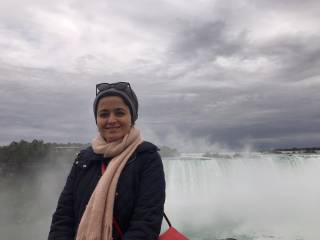
- Gabriel Wartinger - Sovereignty and Ontological Suspension
Supervisor(s): Dr Kevin Inston (principal), Dr Hans Demeyer (subsidiary)
This project critically evaluates the prevailing notion of sovereignty within the context of Western philosophy and political thought. In political theory, sovereignty is interpreted as a historical event, marking the transition from divine authority to secular rule. Philosophically, sovereignty can provisionally be interpreted as an originary force, autonomous and impervious to external influence.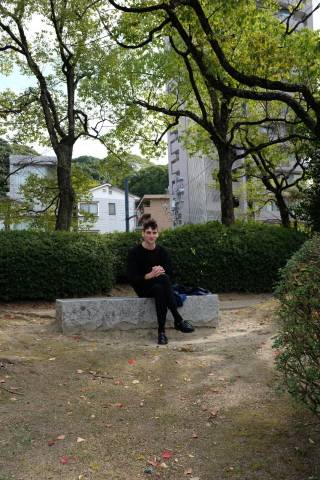
The focus of this research project is to examine sovereignty from the perspective of political philosophy. This disciplinary position is inherently challenging due to the unstable boundaries separating philosophical and political thought. To navigate these complexities, the project proposes the framework of “ontological suspension”.
Ontological suspension is conceptualized as a state in which political entities, norms, and practices exist in a precarious equilibrium, neither fully consolidated nor completely dissolved. This state, marked by conditional and exceptional phases, offers a more nuanced understanding of how political authority, legitimacy, and sovereignty are constructed, sustained, and potentially subverted. The objective is to deepen our understanding of the political sphere, acknowledging the conceptual fluidity within these paradigms.
Film Studies
- Thomas Greggs - Cinema and the Nationalised Coal Industry: Media, Energy, and the Political Economy of Britain, 1947-1994
Supervisor(s): Prof. Lee Grieveson (principal) and Prof. John Tomaney (subsidiary)
Cinema and the Nationalised Coal Industry explores how the National Coal Board (NCB) used media, principally cinema, to facilitate and mediate the management and operation of the British coal industry in the era of public ownership. It uncovers a vast, decade-spanning corpus, testament to the vigorous and enduring commitment of an elite state institution to the production and circulation of moving images. It examines the media produced by the NCB (latterly the British Coal Corporation) as well as the way it circulated in Britain and abroad. Cinema as a didactic and persuasive form of mass communication, used in theatrical and nontheatrical settings, and for a wide range of internal and external purposes, is an important part of this media history. Equally important are the broader histories with which NCB media intersects: the history of national energy supply (the transition from British coal to foreign oil and natural gas); and of British politics and economics (from a planned economy with industrial production at its core to the rise of neoliberalism, the free market, and the deindustrialisation of Britain). Cinema and the Nationalised Coal Industry investigates the relationship between cinema and the NCB for what it reveals about British energy history and the political economy of Britain in the mid-to-late twentieth century and, more specifically, the ways media was shaped and used to supplement the political and economic policies and practices of both an extractive industry and the state.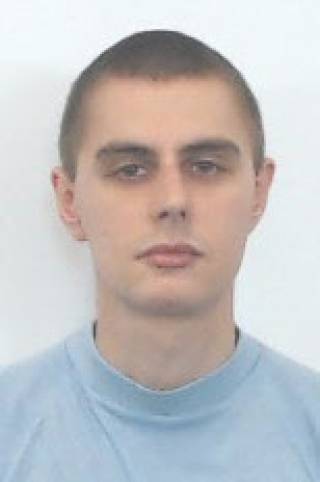
- Lucy Hulls - The Second Box Office: An economic and cultural history of the concession stand in American cinema history
Supervisor(s): Prof. Melvyn Stokes (principal) and Prof. Lee Grieveson (subsidiary)
Today, a stop at the concession stand is a standard feature of the moviegoing experience for the vast majority of audiences. Important socially, the concession stand has also become a significant economic factor in the success of the film exhibition industry. With refreshments sales currently accounting for approximately 40 percent of exhibitors’ profits. Grabbing a carton of popcorn or a soda is now an established and ritualised component of the movie-going experience, but was this always the case?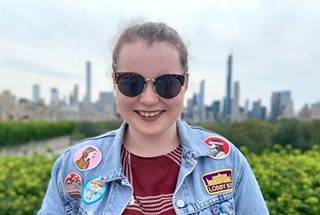
Despite its stable presence within movie-theatres in recent decades, the concession stands history is complex. My research focuses on the contentious period between 1920 and 1955, exploring the key developments that occurred during this period (within the concession stand and film exhibition, but also America more generally), in an attempt to understand how and why the concession stand developed as it did.- Shiyi Jiang - Kitchen modernisation and useful media in the U.S., 1915-1959
- Supervisor(s): Lee Grieveson (principal) and Claire Thomson (subsidiary).
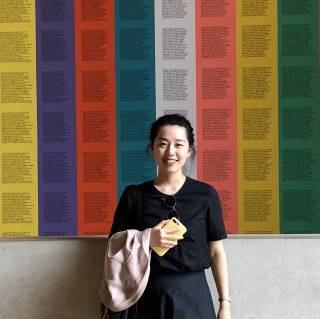
Electrification not only illuminated homes, it importantly re-shaped the domestic space. Technology companies, as major home appliance manufacturers, worked to modernise domesticity and transformed the kitchen into a modern technology-testing laboratory. My research focuses on how institutions such as corporations and government agencies shared in the capitalist revolution to transform the kitchen in the United States; with General Electric, Westinghouse and the Bureau of Home Economics coming to use media to shape peoples’ understanding of technology and everyday life. I examine useful media in the form of promotional, educational, and industrial films as well as television advertisements and explore how media were used to facilitate or supplement institutional directives from 1915 to 1959-bookended by the earliest filmic demonstration of home appliances in the Panama-Pacific Expositions and the celebration of the kitchen modernisation as key to the distinction between liberal capitalist and Soviet communism in the famous “Kitchen Debate” in 1959.
- Christie Cheng - Migrating Optics. Radical documentaries on labour
Supervisor(s): Prof. Lee Grieveson (principal) and Dr Luke de Noronha (subsidiary)
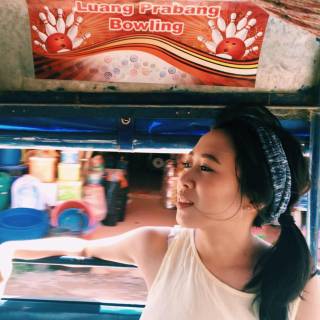
Accessible digital media and screening circuits have enabled activist filmmakers to document more intimate and grounded perspectives on migrant struggles and amplify their demands for better labour and living conditions. These shifting documentary visibilities also attest to concurrent developments of precarious migration taking place beyond the excessively mediatised scenes of crisis migration in Europe and the US. My research examines the rise in radical documentaries on migrant labour that emerged during this post-2015 context of precarious migrant hypervisibility and how they provide alternative optics to understanding the ways in which migration and border regimes have intensified. It looks at documentaries on Syrian migrants who wind up rebuilding post-war Lebanon; deportee labour in Tijuana’s growing call centre industry; “illegalised” sex workers and their demands for the autonomy to migrate and work in Europe and so on to understand how these regimes are set up to govern mobile subjects as racialised labour rather than their violent expulsion from the sovereign territories of a nation state.
- Meng Liang - From Industrial to Post-industrial Capital: Social Media in Chinese Liberal Turn
Supervisor(s): Prof. Lee Grieveson (principal) and Dr Keith Wagner (subsidiary)
My project explores the emergence and transformation of Chinese digital media, especially internet social media in the context of broad shifts from industrial to post-industrial capital. My research expands beyond scholarship on digital media in the Global North and examines specific historical changes in China initiated by internet social media. Following the liberalizing turn in China that began in 1978, the internet as a value-added service of the telecommunication industry has played a vital role in accelerating liberalization by stimulating various intangible capital accumulation since the 1990s.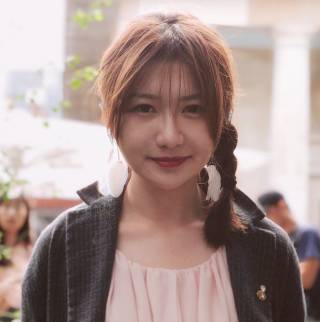
- Maria Laura Sciascia - Refashioning Italianess: the role of costume in contemporary Italian cinema.
Supervisor(s): Prof. Stella Bruzzi (principal) and Prof. John Dickie (subsidiary)
My research would explore the often neglected role of costume designers and the importance of costumes in Italian cinema, from the period defined as the economic boom up to nowadays. Costumes are a subtle language in cinema and can say much about a society, Cinema has been and still is one of the main means to discover Italy and Italians by Italian themselves and by strangers. Talking about Italy, is not easy to define the prototype (or stereotype) of Italian man or woman, because in Italy many differentiations coexist and traditions also in dressing identify variation of Italianess: the Neapolitan, the Roman, the Milanese and the Sicilian are the most displayed on the screen.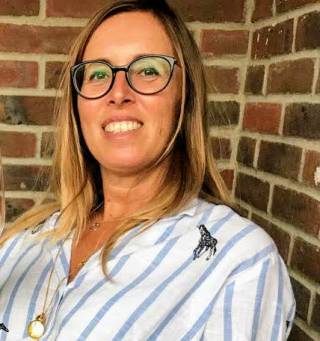
The work would intersect two prominent field of Italian culture: fashion and cinema, where in Italy fashion two products covered an important role in making Italy famous.- Kieran Wakeley - Cold War Classrooms: Educational Film and the Governance of Post-War American Society
Supervisor(s): Prof. Lee Grieveson (principal) and Dr. Claire Thomson (subsidiary)
During the Cold War, the U.S. witnessed a boom in educational film production. This history was driven by the prerogatives of economic and State institutions that produced media to shape the social and ideological norms of young citizens. Through an examination of archival films and documents, this research will reconstruct and explicate a history of the classroom film industry and its role in shaping both individuals and the U.S. political economy, scrutinising the institutions and agendas that informed its growth, and analysing the consequences for educational practice. My research will investigate how educational film was being used to influence the thoughts and behaviours of American youth. It explores the historical entanglement of corporate sponsorship in the production of classroom film, and the role that producers played in bridging the gap between corporate advertising and educational film. It situates classroom films within the context of America’s Cold War culture by examining the motivations of government in dovetailing educational initiatives with and for the benefit of foreign policy. Focussing on the economic and political logics that have shaped this media, this research will generate new critical perspectives on the intersection of educational film, U.S. political economy, and the radicalisation of liberalism during the early Cold War.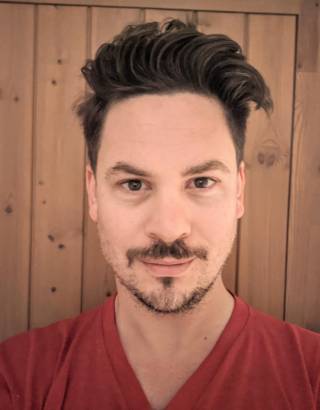
- Ludwig Wagner - Queer South African Cinemas: A Critical Analysis
- Supervisor(s): Dr Hélène Neveu Kringelbach (principal) and Dr Keith Wagner (subsidiary)
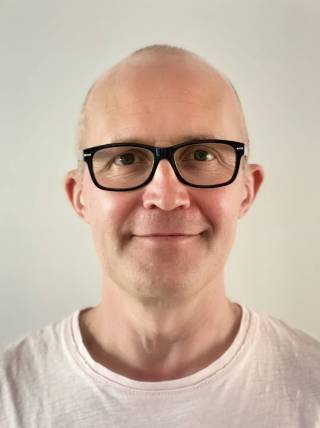
Rather than celebrate their freedoms, South African queer filmmakers and their films instead have to contend with religious and cultural opposition, censorship, and public persecution. Whether examining themes at the forefront of public discourse—sexual violence, crime, and toxic masculinity; or exposing past shames—military torture, state-sanctioned child abuse, queer films place subjects which few want to engage with under a spotlight. My research is to investigate how queer South African films have prompted a cinematic revolution by confronting and exposing South Africa’s blindspots.
- Lakkaya Armahn Palmer - Ferocious Fatherhood: A Crisis in Fatherhood and Masculinity in American Horror Film, 1970s - present
- Supervisor(s): Professor Stella Bruzzi (principal) and Dr Cristina Massaccesi (subsidiary)

Developing ‘The Ferocious Father’ as a new theoretical concept, my research aims to explore the masculine identity as it was constructed in resistance to a newly emerging liberal society and with nostalgia for traditional heterosexual masculinity. There was an abrupt shift in the identity of the monster in horror films: from the external 'outsider' in films such as Dracula to ferocious fathers in the 1970s and beyond. For the first time, horror films portrayed fatherhood in peril and the destruction of families due to a fault of the fathers, such as Jack Torrance’s deteriorating mental health in The Shining.
My research is both a historical analysis of cinematic portrayals of men in the American family and an intervention into how these images relate to real life narratives of fatherhood and masculinity from the 1980s to present. Examining the crisis of fatherhood in horror film offers a new perspective on transgressive fatherhood and masculinity and advances understanding of unruly fatherhood in resistance to broader socio-political landscapes and, at times, in conjunction with them.
- Yixuan Wu - Les Films et Les Choses: Objects in the French Cinema from the New Wave through the 1970s
Supervisor(s): Dr Jann Matlock (principal) and Prof. Jo Evans (subsidiary)
My PhD project will focus on cinematic objects that no one has discussed in a systematic analytical way. I will delve into three categories of objects on-screen: the planar such as paintings, photographs, and maps; the spatial that are carriers of movements like automobiles, stairs, and bridges; and the triaxial that includes all the everyday objects in between. My research will base on the close analysis of film texts, combined with multidisciplinary methods, including theories of the space and the senses, theories of everyday life, and the new historicism as developed by Stephen Greenblatt and Roger Chartier.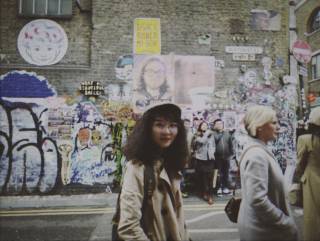
- Thomas Greggs - Cinema and the Nationalised Coal Industry: Media, Energy, and the Political Economy of Britain, 1947-1994
Supervisor(s): Prof. Lee Grieveson (Principle) and Prof. John Tomaney (Subsidairy)
Cinema and the Nationalised Coal Industry explores how the National Coal Board (NCB) used media, principally cinema, to facilitate and mediate the management and operation of the British coal industry in the era of public ownership. It uncovers a vast, decade-spanning corpus, testament to the vigorous and enduring commitment of an elite state institution to the production and circulation of moving images. It examines the media produced by the NCB (latterly the British Coal Corporation) as well as the way it circulated in Britain and abroad. Cinema as a didactic and persuasive form of mass communication, used in theatrical and nontheatrical settings, and for a wide range of internal and external purposes, is an important part of this media history. Equally important are the broader histories with which NCB media intersects: the history of national energy supply (the transition from British coal to foreign oil and natural gas); and of British politics and economics (from a planned economy with industrial production at its core to the rise of neoliberalism, the free market, and the deindustrialisation of Britain). Cinema and the Nationalised Coal Industry investigates the relationship between cinema and the NCB for what it reveals about British energy history and the political economy of Britain in the mid-to-late twentieth century and, more specifically, the ways media was shaped and used to supplement the political and economic policies and practices of both an extractive industry and the state.
- Julia Ryng - Can documentary films challenge Polish homophobia?: Fostering understanding through documentaries between rural Poland and the LGBT+ community
Supervisor(s): Prof. Richard Mole (Principle) and Prof. Stella Bruzzi (Subsidairy)
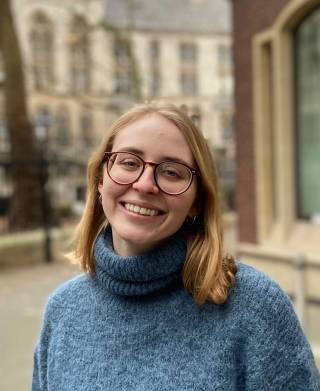
This project aims to provide a unique insight into the impact of documentary films. The uniqueness lies firstly in the study of impact on publics ideologically opposed to the specific message of a film. Secondly, it will combine the theories and methodologies of two disciplines that study the impact of film, namely political cinema scholarship and media and communications. Finally, the specific subject of study will be communities in rural Poland and their views on LGBT rights. Altogether, the investigation will produce a contextualised understanding of the changing nature of Polish socio-political landscape and shed light on the power of documentary films as tools of resistance on one hand and of fostering community understanding on the other.
French Studies
- Lucile Richard - From body to text: on the uses of voice in contemporary francophone women’s writing
Supervisor(s): Prof. Mairéad Hanrahan (principal), Dr Jane Gilbert (subsidiary)
My AHRC-funded research focuses on the notion of voice and how it is used by contemporary francophone women writers. My thesis attempts to look at women’s writing from a new angle, resonating with the values of contemporary feminist thought, and anchored in the postcolonial francophone world. The notion of feminine writing, since it was introduced by Hélène Cixous in her 1975 essay The Laugh of Medusa, has kept a central position in the study of women’s writing. Affirming the existence of gender-marked writing, this notion is very much anchored in second-wave differentialist feminism and has not been consistently challenged by later strands of feminism, in which the question of women’s writing as a whole has often been overlooked. With the recent emergence of movements aimed at breaking the silence on sexist and sexual violence, the idea of speaking up seems to have reached the very heart of feminist thought ; as women’s voices are conquering public space, the posture of women writers deserves renewed attention. My thesis examines how contemporary theoretical redefinitions of voice, and especially the works of Adriana Cavarero, can enlighten literary works produced from a minoritarian position, and attempting to give an existence to under-represented people. The concept of voice allows me to examine the ethical dimension of such texts, and explore notions of flexibility, relationality, proximity, and uniqueness. My thesis is currently focused on works by Assia Djebar, Hélène Cixous and Monique Wittig.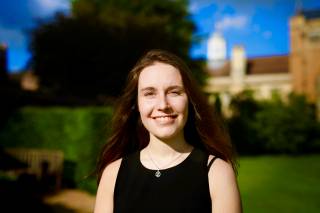
Gender and Sexuality Studies
- Samuel Vermote - The (in)visible father: lesbian motherhood and artificial insemination in Britain from the seventies to late eighties
Supervisor(s): Dr Rebecca Jennings (principal) and James Agar (subsidiary)
My doctoral research project seeks to interrogate the attitudes, practicalities, and paradoxes concerning lesbian artificial insemination in Britain throughout the 1970s and 1980s.To enrich the field of lesbian history, I bring it into dialogue with masculinity studies, concentrating specifically on the exchanges between lesbian women and sperm donors. In these exchanges, lesbian women were confronted with the materiality and cultural meanings of sperm, which forced them to manage the literal and figurative distance between themselves and the man – friend, faceless stranger or other – who produced it. Combining archival research with oral history methods, I seek to investigate the reciprocal influence sperm donors and lesbian women had on each other, exposing, simultaneously, their relation to contemporary notions of masculinity, sexuality and parenthood.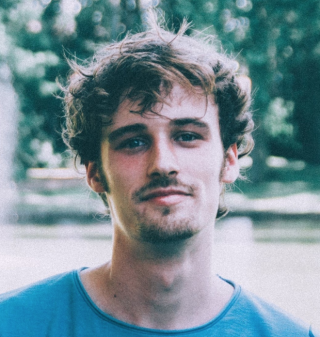
- Nandita Dutta - Mapping Intimacy and Pleasure in a Beauty Salon: First-generation migrant women from South Asia in London
Supervisor(s): Prof. Ann Varley (principal) and Dr Katherine Twamley (subsidiary)
This study aims to investigate whether a beauty salon can be read as a site of intimacy, pleasure and friendship for first-generation migrant women from South Asia in London. If so, then what kinds of intimacies are produced and enabled in the space of a salon? In so doing, my research wants to draw from and build on the scholarship on the dialectic relationship between space and intimacy. In that, it aims to look at the question of how migrant women shape the material, emotional and haptic dynamics of a salon; and in turn, how are intimacies spatially constructed and negotiated? In order to meet these aims, I will employ a qualitative approach, combining participant observation with in-depth, semi-structured interviews.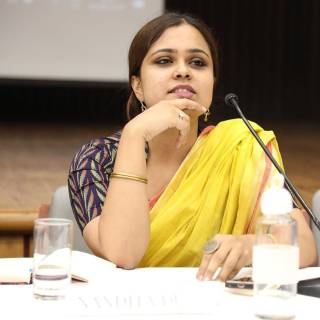
- Mie Jensen - Being Queer and Jewish: a Cross-Cultural Study of Ethno-Religious Experiences and Divides
Supervisor(s): Prof. Sasha Roseneil (Vice-Chancellor and President of Sussex University) and Dr Seth Anziska (subsidiary)
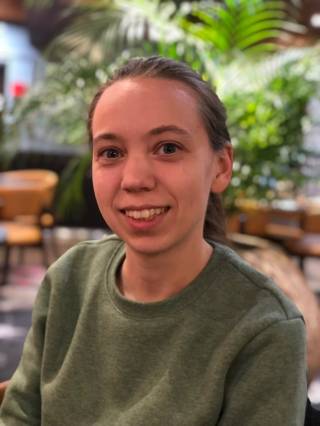
Religious and LGBTQ+ identities have often been seen as conflicting and contradictory identities. In fact, many LGBTQ+ people experience at some point that they are faced with an ultimatum: to be secular and LGBTQ+ or to be religious and repress their sexuality. This binary persists despite socio-cultural changes in both the secular public sphere and within religious institutions. While there has been conducted research on religious institutions’ stance on LGBTQ+ matters and heterosexual religious people’s views and attitudes, LGBTQ+ people themselves, and especially women, have received less scholarly attention. Furthermore, scholars of religion and sexuality have rarely considered that Judaism and Jewishness are not only religious but also ethnic and cultural identities. Mie is, therefore, interested in non-heterosexual Jewish women’s sexual and Jewish identities. She takes an interdisciplinary approach to bring together queer, feminist, and religious theories.
Mie’s doctoral research, which is funded by the ESRC, is focusing on how non-heterosexual Jewish women in England and Israel navigate, express, explore, sustain, and negotiate their sexual and Jewish identities in the 21st century. In addressing this aim, Mie (i) maps non-heterosexual Jewish women’s lived experiences and practices in their own words to provide more nuanced insights into contemporary lived experiences; (ii) presents the first empirical research on non-heterosexual Jewish women in the UK; and (iii) demonstrates the complex and dynamic interplays between the personal, socio-cultural, and national by paying particular attention to understandings and experiences of Jewishness and queerness, the procreative-norm, the couple-norm, and trauma.
In it, she argues that the negotiation, experience, and expression of non-heterosexual women’s sexuality is deeply rooted in their Jewish identities. While previous studies and scholarship has explored LGBTQ+ identities to various religious traditions, she argues that cultural and ethnic Jewishness influence non-heterosexual women as well. In addition to her PhD research, she is, among other things, interested in LGBTQ+ Holocaust Studies, antisemitism from a gender and sexuality perspective, and trauma research.Mie earned her MA in Sociology (First Class Honours) and MRes in Social Science (Distinction) at the University of Aberdeen. For more information on Mie’s work please see: https://www.mie-astrup-jensen.com/
- Arthur Davis (they / them) - Temporalities in Tension: Reimagining the 'Sexual Migrant' from a Temporal Standpoint
- Co-Supervisors: Richard Mole, Jennie Gamlin, Fiona Burns.
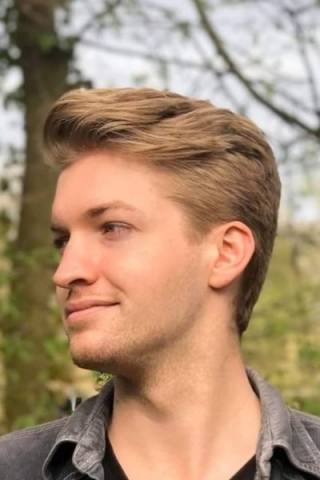
During my undergraduate studies at UCL, with a year at Sciences Po, Paris, I followed an interdisciplinary course-load, focusing on Political Science, Philosophy and French. After teaching English in Madrid for a year, I commenced a Master's in Multi-disciplinary Gender Studies at Cambridge. Following this, I worked with the NHS Leadership Academy, before starting my PhD studies with UCL and Wellcome this September.
My research, which lies at the intersection of Sociology, Anthropology, Epidemiology and Sexuality Studies, seeks to introduce a "temporal" dimension to epidemiological research on "sexual migrants" in the UK. A central assumption of this project is that sexual migrants – whether from the UK or abroad – traverse temporal, as well as spatial, boundaries, and that sexual wellbeing and risk cannot be holistically understood without taking these temporal migrations into account. Through ethnographic research in a London sexual health clinic, I seek to uncover the extent to which abrupt shifts between timelines, such as "coming out of the closet" or transitioning, contribute to sexual risk. This research will have several policy implications, including a potential recalibration of eligibility criteria for targeted risk reduction interventions and an identification of further training needs for sexual health staff working with "temporal migrants".
German Studies
- Les Newsom - British and German Children’s Informative Introduction to Racism, Nationalism, Militarism, and Colonialism Through Education and Play, 1871-1918
Supervisor(s): Mark Hewitson (principal), Jeff Bowersox (subsidiary)
My research project is a comparative study of British and German childhood at the height of European Imperialism (1871-1918). The project will look at how children from both nations were exposed to racist, nationalist, colonial and militarist ideologies through toys, games, and children’s literature. Sources will include cultural artifacts such as the toys and games, children’s books, periodicals, and schoolbooks. Also, documents relating to official and unofficial polices of using these artifacts as direct and indirect propaganda, as well as personal recollections of childhood in diary or autobiographical form.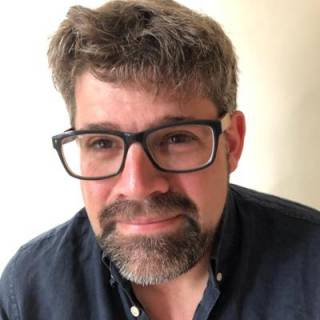
The main questions that my research will investigate are around the active use of childhood items to promote these ideas and the implications of that promotion in adult life. To what extent was the sale and publication of material designed for the consumption of children organised for propaganda reasons? Can the influence of childhood education and play be seen in their adult lives? Does the research demonstrate differences in the form and concentration of material between Britain and Germany and how does this relate to established historiography around imperialism, racism, and militarism? The research will also ask how these themes are still relevant today, with their legacy still debated and problematical in society today.
Health Humanities
- Janina Klement - Mapping Psychiatry Critique: A Transnational Study of Psychiatry Critique and its Reception in Western Europe and the US since ca. 1965
Supervisor(s): Prof. Sonu Shamdasani (principal) and Dr Sarah Marks (subsidiary)
My research investigates the history of psychiatry critique in Europe and the United States in the second half of the twentieth century. Psychiatry critique has been marked by a close interlocking of intellectual and practical endeavours that triggered a range of developments: critiques both from within and outside of the discipline led to comprehensive reforms and deinstitutionalisation of psychiatric practices, formation of patients’ collectives which abolished hierarchies in the relationship between psychiatrists and patients, experimentation with psychedelics and unconventional group settings, as well as psychiatry’s foray into the political sphere.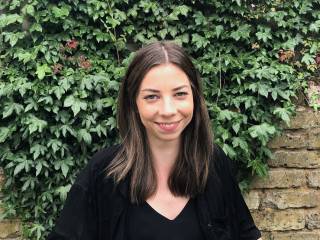
My project constitutes the first attempt to reconstruct the history of psychiatry critique from a transnational perspective. This approach allows for new epistemes of psychiatry critique and its (neglected) legacies: I consider psychiatry critique as a critical psychiatric movement that was successful in establishing new routes of knowledge transfer and exchanges of subversive practices despite internal disagreements. By considering psychiatry critique as an eclectic movement whose aspirations went well beyond the demand for psychiatric deinstitutionalisation (which has so far been held to be critical psychiatry’s sole legacy) my approach challenges existing historiographic narratives.
My project draws on untouched archives and interviews with contemporary witnesses that have so far been excluded from the historical record. These new historical perspectives on currently unrealised alternatives to orthodox psychiatry will allow for a range of policy implications for the permanently evolving and much disputed field of mental health care.
This project is funded by a doctoral studentship from the Wellcome Trust.
I hold degrees in history, politics, and cultural studies from University of Bonn and UCL. I am a teaching assistant at SELCS and affiliated member at the Birkbeck Centre for Interdisciplinary Research on Mental Health.
- Luisa Bayona - The place of musicality in psychic development
Supervisor(s): Professor Sonu Shamdasani and Professor Lionel Baily
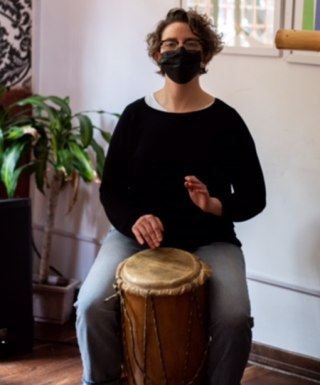
The thesis proposes that musicality plays a crucial role in early psychological development and explores how early musical interactions pave the way for cultural expressions of music. This interdisciplinary study centres on the process of self-development and the not yet thoroughly studied importance of innate human musicality in facilitating the developmental trajectory of becoming oneself and the relevance of the musical aspects for creativity, socialisation and emotional sharing.
- Dr Roghieh Dehghan - The concept of ‘moral injury’ and its association with mental health and trauma in Iranian torture survivors in the UK – a Phenomenological study
Supervisor(s): Prof James Wilson (principle) and Dr Jenevieve Mannell (subsidairy)
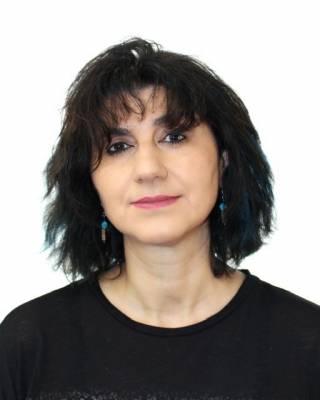
There are strong indications of unmet mental health needs in traumatised refugees - torture being one such trauma. Yet, our current understanding of the psychological sequelae of trauma is epistemologically limited. As a result, some scholars and practitioners have developed moral injury as a recent concept in trauma discourse, with potential relevance to tortured refugees.
Moral injury, a concept for survivors’ responses to the transgression of their moral beliefs, seeks to address trauma’s lasting impacts. However, this concept has to date been solely based on Western military personnel, making its recent application in refugee research ethically and epistemically problematic. If moral injury is to serve the needs of traumatised refugees, a non- Eurocentric understanding of the concept is needed, its epistemic parameters grounded in lived experience.
The need for culturally appropriate notions in trauma discourse is also consistent with my clinical experience of working as a GP with traumatised refugees in the UK. That is why I hope that this project will contribute to a culturally sensitive approach to therapy for torture survivors.
Since Iranians comprise the largest number of asylum seekers in the UK, with some having experienced torture, my study focuses on this cohort of trauma survivors. I first undertake a theoretical investigation of the concept of moral injury before conducting a phenomenological study to explore the impact of morally injurious events in Iranian torture survivors in the UK. This will be followed by focus groups with healthcare professionals and support workers to determine the clinical and policy implications of moral injury.
Italian Studies
- Elinora Lane - The Use of Emblems by Women in Sixteenth-Century Italy
Supervisor(s): Dr Lisa Sampson (principal) and Dr Rembrandt Duits, Warburg Institute (subsidiary)
The aim of my research is to analyze how aristocratic women in the first half of the sixteenth century employed the emblem as a means to express their emerging gendered identities. Currently my analysis focuses on possible patterns among the emblems associated with female and male adopters, as well as to explicate role hierarchies and interaction networks that structure target audiences. I study how women exploited the emblem’s inherent ambiguity to play with multivocal interpretations and to respond to their interlocutors’ reactions. In addition, I plan to investigate how women’s production and reception of emblems reflect broader societal changes in attitude about women’s roles, characters and abilities.
- Francesca Masiero - Literacy and Learning in Latin and Vernacular Schools in Verona (1405-1509)
Supervisor(s): Prof. Dilwyn Knox (principal) and Dr Lisa Sampson (subsidiary)
My research project explores the teaching and learning practices adopted in Latin and vernacular schools in Verona during the early Renaissance (1405-1509), the period when Italy became the most literate society in Latin Christendom. In particular, it describes the teaching practices used by private and public teachers in Verona, ones that, it was believed, would provide the city with the young people on a privileged learning path and upon whom high expectations were set that it needed for political and economic prosperity.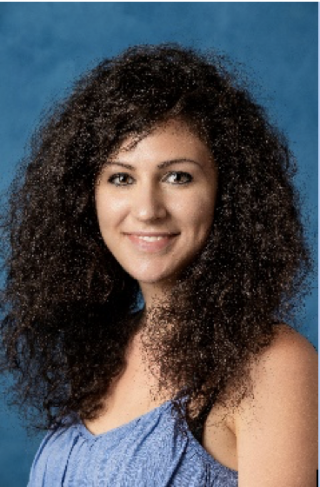
First, it explains how the educational system was organised at secondary level, what subjects were taught and the reasons behind teachers’ selection of literary and scientific texts. Second, it documents the education of girls and female teaching provision. Finally, it investigates the phenomenon of itinerant teachers and assesses the impact that the circulation of manuscripts and early printed editions for pedagogical purposes had on the humanist curriculum.
Race, Ethnicity and Postcolonial Studies
- Gabriel Bristow - Don Cherry's life and music
Supervisor(s): Prof. Paul Gilroy (principal) and Dr Daniel Matlin, KCL (subsidiary)
My thesis looks at the life and music of Don Cherry (1936-1995), a multi-instrumentalist best known as a jazz trumpeter. Despite the singularity of his musical career, from the birth of free jazz to his ventures into “world music” avant la lettre, surprisingly little—scholarly or otherwise—has been written about him. In my research I hope to chart the evolution of his experiments with global folk music in the 1960s and 1970s, situating his approach in relation to contemporaneous cultures of black transnationalism. As a trumpet player myself, I am particularly interested in his unconventional sound on the instrument and the way it took shape as a sideman to Ornette Coleman, Sonny Rollins, and Albert Ayler. Finally, I hope to explore his music as an instance of “popular modernism”, a resurgent term that has been the subject of slow burning interdisciplinary debates for decades (see Sollors, Gilroy, Mercer, Fisher, Brar & Rekret).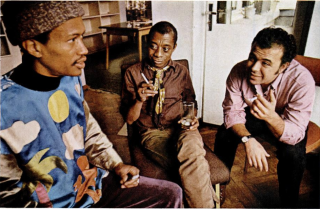
- Natalie Lucy - Anarchic Spider-Man: The legacy of Anancy and the creation of new identities in the work of Black British writers of the Caribbean diaspora
Supervisor(s): Prof. Paul Gilroy (principal) and Dr Helene Neveu Kringelbach (subsidiary)
The focus of this study is the way in which the Anancy trickster from Caribbean folklore continues to inform the imagination and choice of literary themes for many Black British writers of Caribbean ancestry, particularly those writers who are termed ‘Second Generation’.
The West African Anansi tales served numerous functions, including a means to name and explain the world, and in providing a forum in which to comment upon the excesses or tyranny of the powerful, behind the dual masks of animal characters and humour. The tales were transported to the Caribbean on the slave ships where they were adapted to serve the harsh conditions of slavery. Through the antics of the principal protagonist who was brazen and at times absurd but whose linguistic agility and superior intellect resulted in his repeated triumphs against the analogous slave master, Tiger, the tales suggested a means of resistance. However, they also offered a necessary means of escapism through storytelling sessions in which the tales were punctuated by visual or auditory elements, including music and gesture, features from an African oral tradition, which added to the sense of the performance and theatre.
Anancy has continued to influence writers in the Caribbean but, as a motif, it has also emerged in the writing of Second Generation Black British writers from its diaspora. In this project I wish to examine the ways in which Anancy has been invented at critical political points and the reasons why he continues to suggest an aspirational motif for contemporary writers. One of the possible reasons relates to his fluid identity which evades traditional classification. In contrast with the singularity of voice which has traditionally been asserted in British literature, Anancy signifies the potential richness of hybridity, or multiplicity of ‘voices.’ It is my thesis that a recognition of the potential creative power of composite experiences is both relevant and timely within multicultural Britain, particularly as it acknowledges the literary impact of the storytelling traditions of the Caribbean which have helped to construct ideas of Britain and Britishness.- Sophie Chauhan - Dis/Assembling White Racial Power: ‘Asian-white Mixedness’ and the Regeneration of Race
Supervisor(s): Dr. Xine Yao (Principle) and Dr. Victoria Redclift (Subsidiary)
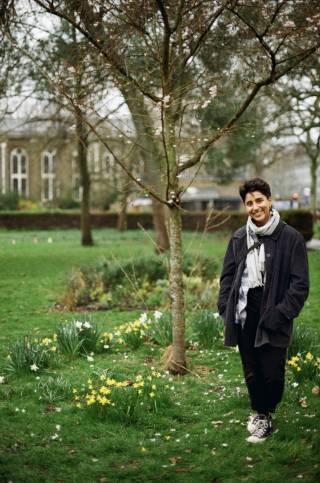
Characterisations of post-racial ‘mixedness’ and economically potent ‘Asian-ness’ significantly shape Western thinking about the future of race. This two-part thesis argues that, where these categories converge, ‘Asian-white mixedness’ holds a vital stake in the growth or decline of white racial power. Section one analyses the cultural production of Asian-white mixedness to detail its entanglement in anti-Black and settler colonial racial projects. Section two presents a comparative ethnography of (mixed-race) Asian activists in Melbourne and NYC who refuse the solicitations of whiteness in favour of anti-racist coalition-building. Overall, this interdisciplinary, transnational and intersectional study explores how those made covertly complicit in white racial power can become active agents in its undoing.
Scandinavian Studies
- Luthien Cangemi - The Art of Healing in Medieval Iceland: Old Norse cultural perspectives on illness and health and its debt to the English medical tradition
Supervisor(s): Dr Haki Antonsson (principal) and Prof. Sophie Page (subsidiary)
My research focuses on XIII-XV Old Norse medical treaties featuring classics and continental models, to assess the extent to which Mediterranean medical practices were assimilated and re-elabotared within the Old Norse framework to understand the cultural dialogue between medieval Scandinavia and the continent. I will provide annotated translation of remedies, herbaria and antidotes contained in manuscripts preserved in Copenhagen and Reykjavík, comparing them with their continental counterparts at the British Library, Cambridge and Oxford. Consequently, the nature and the usage of these texts as sources of healing will be problematised and I will challenge the obsolete term “pseudoscientific” used in scholarship to refer to medieval medical practices and elaborate a new interpretive frame of understanding.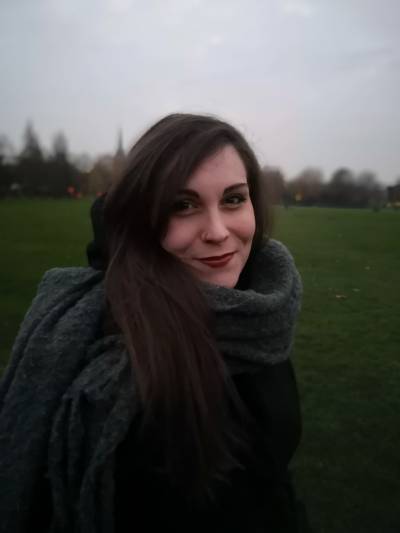
I will demonstrate that Old Norse participated to the cultural syncretism in the Middle Ages by assimilating the occurrence of Classics and continental medical knowledge in manuscript context. This will lead to study a materiality of practices which allowed for a physical impact on the body. My research will address the cultural biases that have greatly affected certain topics within Old Norse scholarship which have not been considered in a comparative perspective and have led to the study of Old Norse culture in isolation.
- Ben Chennells - Performance and the Shaping of Reality in Old Norse Poetry
Supervisor(s): Dr Erin Goeres (principal); Dr Haki Antonsson (subsidiary)
Using established scholarship for a new departure, my research analyses performance in and of Old Norse oral-tradition poetry to articulate how poets represented the dynamic relationships between the world, words, and their perception of the workings of the mind. It establishes the links between body, cognition, and cosmos in mythological ‘eddic’ poems, the ways in which the kaleidoscopic imagery of ‘skaldic’ poetry forced listeners to make strange connections, consequently refreshing their perceptions of language and the physical world, and how poets, through performance, could generate and set history or produce dire consequences for individuals and societies.
My thesis focuses on Old Norse but it is also about performance art, which has become an unignorable thrust of scholarship in the field. The poetry on which I focus descended through an oral tradition, composed by pre-literate poets for pre-literate audiences. Performance was, therefore, once its only medium; yet it was of immense social significance. By focusing on the performative culture of medieval Iceland, so central to the formation of its identity and international reputation at the time, my study opens up new avenues for the deployment of performance theory and, in doing so, brings an intriguing period of European artistic history to the attention of modern performance studies.- Georgia Gould- Tablets and Trade: how trade, migration and social status influenced motif and technique in Medieval Scandinavian tablet-weaving
Supervisor(s): Dr Haki Antonsson (principle) and Prof. Jane Hawkes (University of York)

Tablet-weaving is a form of loom weaving in which a yarn warp is threaded through tablets, also known as cards. The tablets can be turned forwards and backwards, either as a full pack or each turned individually, with a weft yarn passed through the warp at each completed turn of the pack. In this way, the yarn warp becomes a textured band. From these twisted threads a sophisticated pattern or motif can emerge on the surface of the textile. My thesis analyses how human migration and the expansion of international trade networks influenced the way in which the motifs and techniques of tablet-weaving evolved within Scandinavia and Northern Europe during the Middle Ages. The elaborate tablet-woven textiles within the ninth-century Oseberg ship burial provide a framework for this study. In addition, the investigation of textiles from the British Museum, Kulturhistorisk museet in Norway, Nordiska museet in Sweden and more brings to light the significance of the textile fibres and weaving techniques which shaped the narrative history of tablet-weaving. Using fresh data collected from an array of international textual and archaeological sources, my thesis aims to provide a new perspective on the story of textile production and trade across Medieval Northern Europe.
Spanish, Portuguese and Latin American Studies
- Fred Carnegy-Arbuthnott - Revolts in Andalusia (1647-1652): popular politics, the grain market and the Little Ice Age
Supervisor(s): Dr Alexander Samson (principal) and Prof. Julian Hoppit (subsidiary)
My research focuses on the history of a series of revolts and disturbances that took place in Andalusia, Spain between 1647 and 1652. These urban uprisings affected over twenty towns and cities in the region, including Seville, Granada and Cordoba, and appear to have been primarily motivated by the high price of foodstuffs, in particular bread. These events have been linked to the disruption caused by Little Ice Age climate in the seventeenth century, as part of a broader theory of climate change and crisis (Parker, 2013). In looking at the workings of the grain market and the efforts of local government to provision their towns and cities, my work tries to think about the links between, climate, harvests, prices and revolts in the early modern period.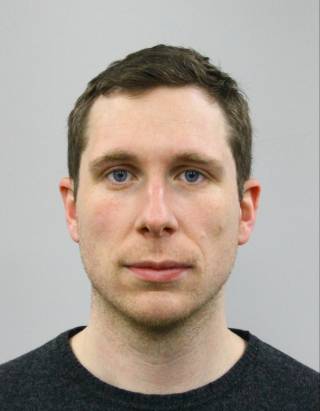
- Elizabeth Chant - Horizon on Horizon: Representing the Patagonian Natural Environment, 1774-1992
- Supervisor(s): Prof. Claire Lindsay (principal) and Prof. Zoltán Biedermann (subsidiary)
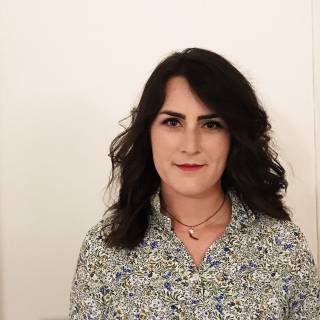
My AHRC-funded research analyses the evolution of representations of Patagonia using a diverse body of material including cartography, photography, literature, and voyage accounts. Nowadays comprising southernmost Argentina and Chile, Patagonia remained a tenuous Spanish possession throughout the colonial period. Beginning in the 18th century when Spain attempted to colonise eastern Patagonia in an extensive but little-known project, I consider how perceptions of the region’s natural environment have often been contradictory, navigating aesthetic pleasure and desire as well as abjection and repulsion. I trace this dissonance in material from either side of the Andes as well as in anglophone travelogues, assessing the portrayal of diverse natural aspects such as flora, fauna, the region’s turbulent seas and its vast interior. By untangling Patagonia’s myriad representations, I shed light upon the cultural forces that compel hordes of Western travellers to seek an intrepid experience in Patagonia in modernity.
- Blanca Gómez García - The British Exile: Memory and Trauma in the Works of Spanish Writers Exiled in Great Britain after the Spanish Civil War
Supervisor(s): Dr Gareth Wood (principal) and Dr Mari Paz Balibrea, Birkbeck College (subsidiary)
My project explores the relevance of memory, trauma, history, and exile in the testimonial writings of Spanish authors exiled in Great Britain. Using theories of exile and theories of memory as a framework, my PhD seeks to understand how the unique conditions of the British literary exile led to a creative process that provides a different understanding of the conflicts that occurred in Spain last century as well as a more dialectic approach to exile, deconstructing common fixed dichotomies and ideas. Furthermore, besides challenging the canon and displaying new perspectives about historical events which are crucial for the Spanish collective identity, Spanish exiles’ literary works are relevant in the context of transnational studies as hybrid creations which belong to two cultures. For this reason, exile literature stands in an undefined space between politics, history and literature, which can facilitate the understanding of the complexities of a people’s history.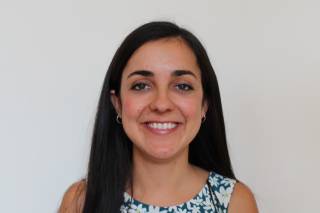
- Victoria Rasbridge - Intersecting Identities: Representing Queenship in the Golden Age comedia
Supervisor(s): Dr Alexander Samson (principal) and Dr Lisa Samson (subsidiary)
My AHRC-funded research explores the representation of queenship on the early modern Spanish stage, focusing specifically on
the depiction of fictional queens in the late-sixteenth and early-seventeenth century. Identity has long been acknowledged as the interaction between experience, allegiance, and community, constructed at the intersection of multiple ideological demands and social categorisations. Drawing on this understanding of the intrinsic multiplicity of identity, my research establishes a new intersectional framework through which the queen’s character and the crisis that her identity was undergoing as a result of tensions within Spanish imperial ideology can be understood. In so doing, it challenges existing critical typologies of female characters, and demonstrates how female roles cannot be neatly contained by static and one-dimensional categories of identity. By applying an intersectional lens to the study of the comedia generally, and to the figure of the queen specifically, my thesis identifies how playwrights variably utilise, manipulate, and invert interlocking systems of power in order to shape the creation of their characters.
- Michael Protheroe - Seeing Queerly: Embodied Spectatorship in Chilean and Venezuelan Queer Cinema
Supervisor(s): Professor Deborah Martin (principal) and Dr Emily Baker (subsidiary)
This research project examines contemporary queer Chilean and Venezuelan cinema which appeals to a more embodied form of spectatorship than traditional cinema. In doing so, this project will interrogate how such cinema explores and represents queer space, queer time and what I will propose is a queer visuality specific to these films. The films in my corpus invite a synaesthetic approach that attends to the materiality of film as they deconstruct the traditional cinematic dependence on the visual economy at the expense of the other senses. This research will also focus on the (queer) lived-body and how such a body might occupy (queer) space and time and how the films in this corpus perceive, express and navigate a queer spatiotemporal framework. This emphasis on bodies, space and time will be aided by a methodological and theoretical framework of phenomenology, specifically the film phenomenology first espoused by Vivian Sobchack in her Address of the Eye (1991), which I will develop through a productive combination with Sara Ahmed’s Queer Phenomenology (2006). I aim to put into practice a kind of “queer film phenomenology” as a mode of approaching cinema that attends to its materiality and also its queerness, separately and in concert.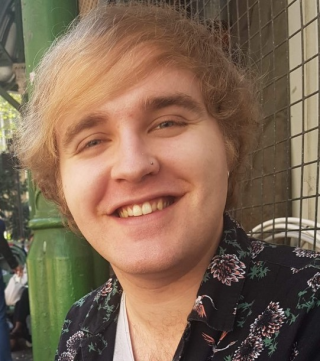
- Oliver Schwarz - Nietzsche in Rio: A cultural transfer 1950–1975
Supervisor(s): Dr Martin Liebscher and Dr Ana Cláudia Suriani da Silva

The specific aim of my doctoral research project is the reconstruction of the Brazilian reception of German philosopher Friedrich Wilhelm Nietzsche's ideas – especially among avant-garde groups, such as the Brazilian second and third generation modernists in Rio de Janeiro, and the burgeoning counter culture in the 1960s and 1970s Ipanema. A particular focus is thereby on the dynamics of the cultural transfer, hence on international networks, intellectual mediators and gobetweens of the globalised 'World Republic of Letters', that helped these ideas to spread around the globe. My work can therefore be placed right at the edge of fields such as Intellectual History, German- and Brazilian Studies’.
Translation Studies
- Sui He - Scientific Metaphor in Translation
Supervisor(s): Dr Mark Shuttleworth, Hong Kong Baptist University (principal) and Caiwen Wang (subsidiary)
The fact that metaphor is often a prominent feature of popular scientific texts gives rise to an interesting collision between the precision required by science and the fuzziness associated with metaphor. Meanwhile, although metaphor has been used to describe our scientific world to facilitate communication, not all of the metaphor-related experiences are universally shared. My research examines how translators tackle this dynamic metaphor system in popular scientific context in practice based on a parametric analysis and sheds light on the fact rather than being a translation problem, metaphor can also be a solution.
- Lydia Hayes - Game of Memes: Accents in Audiovisual Texts
Supervisor(s): Dr Rocio Banos Pinero (principal) and Dr Irene Ranzato (subsidiary)
My research focuses on linguistic variation as a marker of cultural identity and accents, therefore, as “unit[s] of cultural transmission” or, in other words, “memes” (Dawkins 1976: 206). Using a memetic framework, according to which accents are linked to diatopic, diastratic, idiosyncratic and diachronic signs, I investigate the use, or lack thereof, of accents in the original version of the HBO series Game of Thrones (David Nutter et al 2011-2019) and its Castilian Spanish dubbed version, Juego de tronos. The aim of my research is to expose the connotative weight of accent and thus propose alternative dubbing strategies, which are capable of nuancing identities and conveying deeper dimensions of meaning than that which is currently being transmitted to viewers of Spanish dubbed texts (due to standardisation conventions in the Spanish dubbing industry). In tandem with my research, I am a postgraduate teaching assistant at the Spanish and Latin American Studies Department.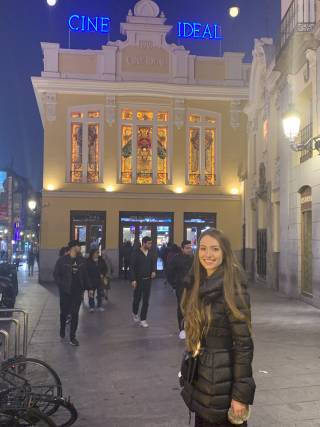
- Asa Erh-Ya Tsui - Combining Critical Discourse Analysis, Interpretative Phenomenological Analysis and Natural Language Processing Approach to the Impact of Ideology on News Translation (A study of western English mainstream media on the evolving crisis of the US-China economic relationship)
Supervisor(s): Dr Federico Federici (principal), Dr Christophe Declercq (subsidiary) and Dr Claire Yi-Yi Shih (tertiary)
Translation and media play an essential role in our society, particularly in an era of sweeping globalisation trends and unprecedented advances in technology development. By their common nature, both are instruments of communication, their neutrality has always been in question since they are susceptible to the impact of human-related factors, especially ideology. Drawing on Fairclough's three-dimensional model of critical discourse analysis (CDA), along with Halliday's systemic functional grammar (SFG) and Martin and White's appraisal theory within the paradigm of CDA, my study attempts to examine the ideology concealed underneath news translation via a mixed research method approach- combining CDA, Interpretative Phenomenological Analysis and Natural Language Processing approach.
- Shaoqiang Zhang - Developing A User-Oriented Accessibility Evaluation Model for Translated Health Resources
Supervisor(s): Prof Federico Federici (principal) and Dr Vicent Montalt (subsidiary)
The Convention on the Rights of Persons with Disabilities (UN CRPD) recognises access to health information and digital resources and technologies as a basic human right. Enjoying accessible and digital bilingual, as well as translated health resources is a fundamental human right, especially for vulnerable people such as elderly citizens, people with hearing or visual impairments, and people from lower socio-economic backgrounds. However, health information is always written in a way that is difficult for the layperson to understand, thus creating barriers for them to use and act.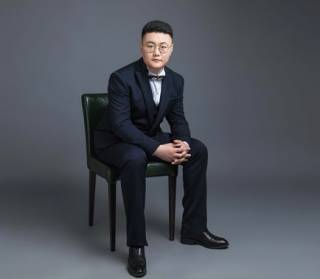
My research aims to identify the linguistic, textual, and visual features which have an important impact on the accessibility and understandability of bilingual health-themed resources and explore the best practice model in health translation by integrating textual and visual information. In order to alleviate the cascading impact caused by inaccessible health information and improve the experience and satisfaction of users with the widest range of abilities, this research project will develop a user-oriented accessibility evaluation framework to enable more effective health education and the promotion of resources in multilingual, multicultural societies.- Lucelle Pardoe - Decolonizing the Curriculum through Translation: Indonesian Literature in Dutch Education
Supervisor(s): Prof. Kathryn Batchelor (principal) and Prof. Reinier Salverda (subsidiary)
This research responds to calls to decolonize institutions and curricula across Europe by making a case for research at the intersection of Translation Studies and Education Studies. Using the Netherlands and Indonesia as a case study, this research unfolds the potential for counter-narratives from Indonesian literature to de-center Europe in Dutch education through translation.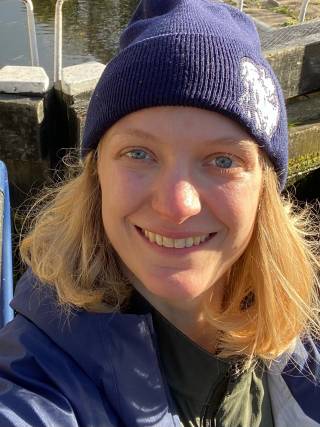
- Fang Shaohang - Interpreters' online preparation behaviour
Supervisor(s): Dr Claire Shih (principal) and Dr Caiwen Wang (subsidiary)
Interpreting for a specialised assignment requires linguistic and extralinguistic knowledge. Different from translators who can learn this knowledge while translating, interpreters have little time to do so and thus have to acquire it mainly by preparation. Among professional interpreters, there are some common preparation strategies like reading the documents sent by clients, searching online for background information, and building a glossary. But regarding the more specific questions about, for example, where to find the most relevant knowledge and how to make them available for interpreting, few detailed and thorough approaches have been provided. As a result, some trainee interpreters may find the preparation process confusing and do not know where to start. Collecting evidence about the behaviour of interpreters’ preparation could reveal some commonalities and idiosyncrasies of their practice. By comparing the behaviour of different interpreters with an eye on their interpreting quality, good practice may be found. However, while translation studies have seen researches on translator’s behaviour of web searching, there is little research done investigating the interpreters’ behaviour during preparation. Therefore, researching the process of interpreting preparation could help fill the gap and offer empirical evidence for interpreting preparation.
- Huihuang Jia - The Impact of Subtitling Speed on Viewers Watching Experience: Evidence from Eye Tracking and EEG Technologies
Supervisor(s): Prof. Jorge Díaz-Cintas (principal) and Prof. Agnieszka Szarkowska (subsidiary)
Huihuang's doctoral study sets out to work in the emerging and blooming field of audiovisual translation, with special emphasis on cognitive approaches to subtitling. The main aim is to explore empirically the impact that different subtitling display rates, under various linguistic conditions, can have on viewers' watching experience.
- Chloe Franklin - How Does Information Inacessibility Impact d/DEAF And Hearing-Impaired Persons During Disaster And Crisis Situations? A Community-Based Study Of The Policies Informing Crisis Communication In Accessible Formats For d/Deaf And Hearing-Impaired Communities In England
Supervisor(s): Prof. Federico Federici (Principle) and Dr Soledad Zarate (Subsidiary)
The COVID-19 Pandemic highlighted the importance of information accessibility in appropriate formats. England's communication strategy throughout this pandemic demonstrated that the study group was an afterthought in their comminques, with inadequate communication methods utilised.
 Close
Close

